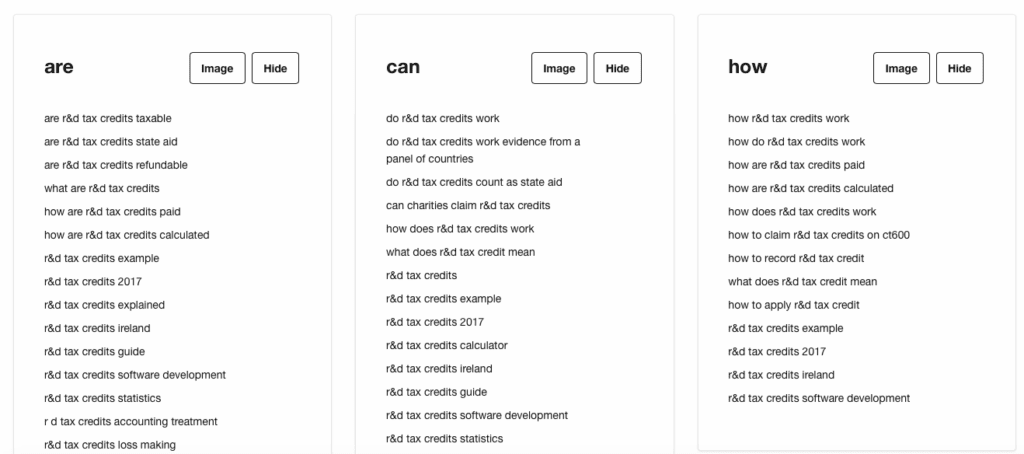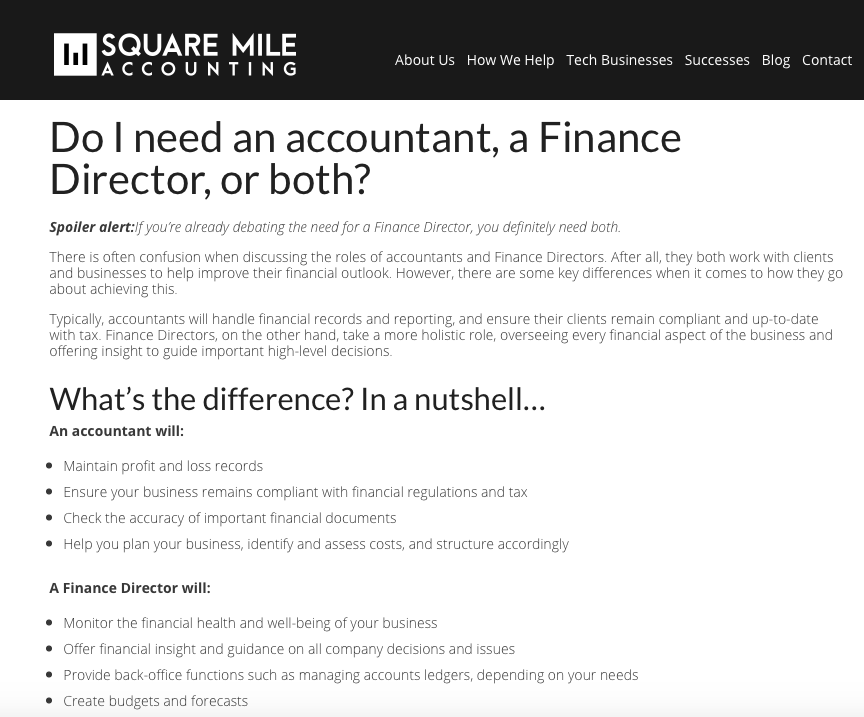
When firms are looking at their marketing efforts, they often they want to jump straight to lead generation, with paid SEO at the helm.
But when that’s the case, those firms are a step behind. If you’re not actually writing original content, then you don’t have anything of value for SEO yet.
SEO is complicated, and there’s a lot of bad advice out there, or companies that promise to educate you around how SEO works, but end up leaving you with more questions.
The answer lies in what you do with the content, so let’s dive in to everything you can do to maximise your success and get more eyes on all that amazing content you’re writing!
First, create original content and keep sharing it
In today’s marketing trends, content is still king.
Your audience is still looking for answers to their burning questions, to find answers that provide value to them around the issues their facing, and eventually, someone they can build a trusted and lasting relationship with.
Your marketing efforts are responsible for doing all of that, but it serves a dual purpose: Improving your search engine optimisation.
But at the same time, you’re thinking “I’m writing all this content, but how are people going to find it!?”
You need to embrace the “They ask you answer” concept, and be creating content based on the questions your clients and prospective clients are asking. It’s important for SEO that this is not templated content, bought in or produced en masse. As we’ll see, it has to be content unique to you, your niche, your clients, your answers.
The firms that are getting better results from SEO start by blogging at least once a week (as well as creating other content). Remember, Google appreciates blogs that are the 1000+ words.
That’s not to say you can’t get the message across in less words than that, and by the same token, you don’t want to word stuff it for the sake of it. That leads very nicely to keywords.
Research keyword topics, rather than specific keywords
One mistake a lot of firms make when it comes to search engine optimisation is keyword stuffing, where they’re putting keywords into their landing pages and blog posts for the sake of it.
You’ll often keyword stuffing in the footer of websites, with several phrases like “Xero accountants London” placed there with no context.
That’s a tired approach to search engine optimisation, and what we’ve found is that you have more success with keyword topics. Here’s an example:
Square Mile Accounting wanted to push their Virtual FD service, so following a “They ask, you answer” session, we came up with a series of questions their audience will be asking around that level of service.
When writing the content, we’re using the topic of “Virtual FD” as the keyword topic. It’s in the title, the URL, the meta-description and variations of that, such as VFD, CFO, Virtual Finance Director) are peppered through the content.
This approach means the content flows and makes much more sense, and you’re still optimising your content for SEO, as Google will recognise that you’re content is something people will be entering into Google searches.
In order to do the research, there are two tools you can use to give yourself a framework for finding keywords phrases and crafting your content around them:
- CMA blogging checklist: In Chris Marr’s tutorial on writing a blog, one of the steps he encourages you to do is ask yourself “What are the keyword phrases, primary and secondary?” as well as “What already exists online?”. This allows you to do the research before writing your content to see what keyword phrases best fit your topic and how saturated the results might already be (or not be). You can download that here.
- Answer the public: This a free online site that shows you questions and phrases people have been entering into Google. Simply enter your own keyword or phrase and the results will appear in the form of questions, comparisons and prepositions. You can see an example below for “R&D tax credits.”

Always remember that it’s not about what YOU type into Google.
It’s about what your prospective audience is typing. Google returns different results for different people and different locations, so just because you don’t come up first for yourself doesn’t mean you’re not coming up in search results.
You can also look at doing a competitor keyword analysis, which helps you identify what phrases and keywords your competitors are ranking for in comparison to you. Drop us a note if that’s what you need!
Social media & video matter as well for presence building
The important thing to remember about search engine optimisation is it’s about creating a presence. There’s a misconception that it just applies to your website, but for SEO, your website is simply a by-product of creating an online presence.
Because of that, social media and video are equally important in boosting that presence. Posting daily on all the platforms will help maximise the eyes on your content. Be where your audience is and post your valuable blog content and landing pages there.
Have you noticed that YouTube and Twitter now appears in search results on Google? That’s because they’re considered the second and third search platforms (and YouTube is owned by Google.)
Record video regularly. Share it on social. Upload it to YouTube. Embed it on your blogs. These are all small tactics you can take to maximise your search engine optimisation and get more eyes on your content and more leads through the door.
Your SEO to-do list
So you’ve got your original content, or you’ve got an idea in mind for what to write. Let’s recap everything you can do to help boost that content further:
- Create a list of keyword phrases based on your keywords you’ve got from client conversations and questions.
- Write a blog post once a week answering those questions and incorporating those keyword phrases.
- Record a video that talks about your blog post and embed it into the blog content.
- Share your post on all the social media platforms – Facebook, Twitter, LinkedIn and Instagram.
- Run a competitor analysis to find out what keywords people are searching to find your competitors. We’ll be sharing more on this soon.
To get all the details of how to do SEO well, get on the waiting list for our SEO guide, which comes out in the coming months.


